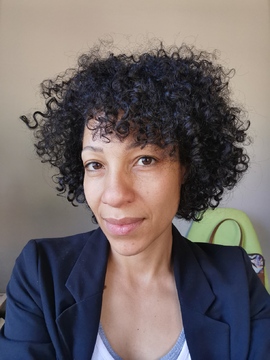In previous articles, we have seen that one of the roles of a leader is to motivate and inspire their employees. By maintaining a positive environment, you help drive your company’s objectives. Mentoring is one way of doing this.
The managers in your organization take the time to develop staff for long-term company benefits. In this article, we will look at how you can influence the overall development of your team by looking at how to plan for, promote and support mentorship programs adequately. But first, let’s briefly look at why it’s necessary to take the time to help your employees grow.
Benefits of Mentoring Staff
1. Motivate and Inspire
When you allow staff to participate in goal setting and see that there is room for growth within the business, they’re inclined to adjust their behavior to have an incentive to apply themselves to their work.
2. Knowledge Transfer
Mentoring also creates a space for the development of new talent and enhances employees’ existing skills. Mentoring is also a valuable tool to assist employees who aren’t meeting expectations.
3. Maximize Productivity
Mentorships involve assigning tasks to individuals that challenge them to reach a new level of competency. A mentor may decide to delegate one of the activities that they’re responsible for to their mentee. Although the accountability still rests with the manager, this frees up their time to do tasks of more significant consequence.
4. Impart Leadership Skills
When given greater responsibility, individuals tend to adjust their behavior to prove that they’re up to the task. This sense of ownership is an essential factor that determines your company’s success.
5. Succession Planning
As a business owner, you may envision the day when your company has evolved to the point where you no longer need to be hands-on, operations run smoothly, you have a reliable client base, and your organization is profitable. To ensure that this happens, you need to establish a sound succession plan and build a staff capable of running your business as efficiently as you do.
Plan (GROW model)
Sir John Whitemore created this approach to mentoring to improve performance through learning. It is an outcomes-focused method where staff and company growth happens in the following steps:
• Goal
The starting point for mentorship programs is determining what the desired outcomes are. A practical example of this is if the company intends on upskilling administrative staff to perform more specialized activities. You measure their progress against the tasks assigned. The tasks should challenge them, but the difficulty level shouldn’t be so high that they are discouraged.
• Reality
Leaders and management look at the status quo and decide what areas need improvement whereby reflecting on current circumstances, you can enhance existing practices.
• Obstacles/ Options
After setting goals and identifying the steps to achieve them, the next phase is to look at how the company will bridge gaps and try to foresee any challenges that may arise to proactively prevent them.
• Way forward
Leaders and management put the details to paper and commit to specific actions and timelines.
Promote
Up to this point, all planning has been at the upper management level. Now it is time to engage the rest of the staff to carry out your new professional development or mentoring program.
• Identify the Parties Involved
This is where you select the mentor and mentee as well as supporting staff. In most instances, a program coordinator will assist in organizing the efforts of the mentor to guide the mentee. Both parties must be committed to the process. Communication is critical at this juncture. All parties must be clear on the program and its expectations.
• Evaluation Criteria
Management must establish criteria to measure the success or failure of the mentoring program. For example, if you’re developing a sales assistant into a managerial position, increasing sales for the team could be one benchmark.
• Training Needs
Everyone involved decides what training is needed and whether it can take place on the job or if formal (classroom) training is required.
Support
Although the mentor is skilled at what they do, they may not know precisely how to mentor. The coordinator can help to provide tools for the successful fulfillment of the mentorship.
• Resources Needed
Job descriptions, logbooks, and checklists can help the mentor know what to cover.
• Monitoring
You can do this by getting feedback from the mentor and interviewing the mentee to identify and address any challenges.
• Feedback
Depending on the scale of the mentorship, the mentor or coordinator will have to report to those who initiated the program. Leadership will want to know if their directive of upskilling personnel is being met. As a business owner, you want to ascertain what is and isn’t working when raising your employees’ skill levels.
This article has discussed the importance of mentoring and how it opens up new possibilities for a company where individual growth translates to reaching its objectives. We also looked at how to plan, promote and support mentorship efforts that will result in employees gaining a sense of purpose and increase your company’s growth.













Pingback: Top Under The radar Secrets To Create A Successful Home Based business Enterprise(Product) ·